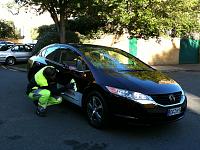Welcome to the Auto Repair Manuals.
The battery car is dead: Long live the fuel cell
5 stars based on
1 reviews
-
 The battery car is dead: Long live the fuel cell
The battery car is dead: Long live the fuel cell

Similar Threads
-
By Auto News in forum AutoNews
Replies: 0
Last Post: 31.01.2014, 03:22
-
By Auto News in forum Avtomir - miscellaneous
Replies: 0
Last Post: 28.01.2014, 14:01
-
By Auto News in forum News
Replies: 0
Last Post: 01.03.2013, 11:12
-
By Road&Track in forum News
Replies: 0
Last Post: 25.04.2011, 18:42
-
By Road&Track in forum News
Replies: 0
Last Post: 31.01.2011, 22:20
 Local
Local

 The battery car is dead: Long live the fuel cell
The battery car is dead: Long live the fuel cell



 LinkBack URL
LinkBack URL About LinkBacks
About LinkBacks